The designer's guide to software
We round up the kit you’ll need to start or expand a studio, whatever your budget.
A studio’s software options depend upon its core creative offerings. If you specialise in web and app design, then your prototyping and wireframing tools will be indispensable. If you’re a packaging and design outfit, then InDesign and Acrobat will be firmly lodged in your dock.
But Adobe doesn’t rule the roost entirely. There’s a growing number of 3D, video and motion graphics packages, prototyping and coding apps gaining favourable followings. As ever, choice is often dictated by budget and need – so if you only crack open a video editor to mock up the occasional animated GIF, there’s little point blowing your budget on Final Cut Pro X.
A studio’s software options depend upon its core creative offerings
Similarly, running a successful studio means doing the admin work, too. Keeping track of invoicing, budgets and productivity is crucial, so we’ve selected a few of our favourite creatively-focused project management tools. These aren’t sexy bits of kit, but they are hugely valuable in ensuring you’re running your studio profitably and productively. We’ve also touched on communication apps. Collaborative, remote, and freelance working models are key to the creative industries and so managing these areas with the right tools makes for empowered and informed teams.
Finally, we’ve picked two coding and wireframing apps that are making a huge impact in the industry – one is free, and the other a snip at $99. Both receive huge support from their respective user communities, and shouldn’t be sniffed at just because they don’t come with a heavy price tag.
01. Creative Cloud
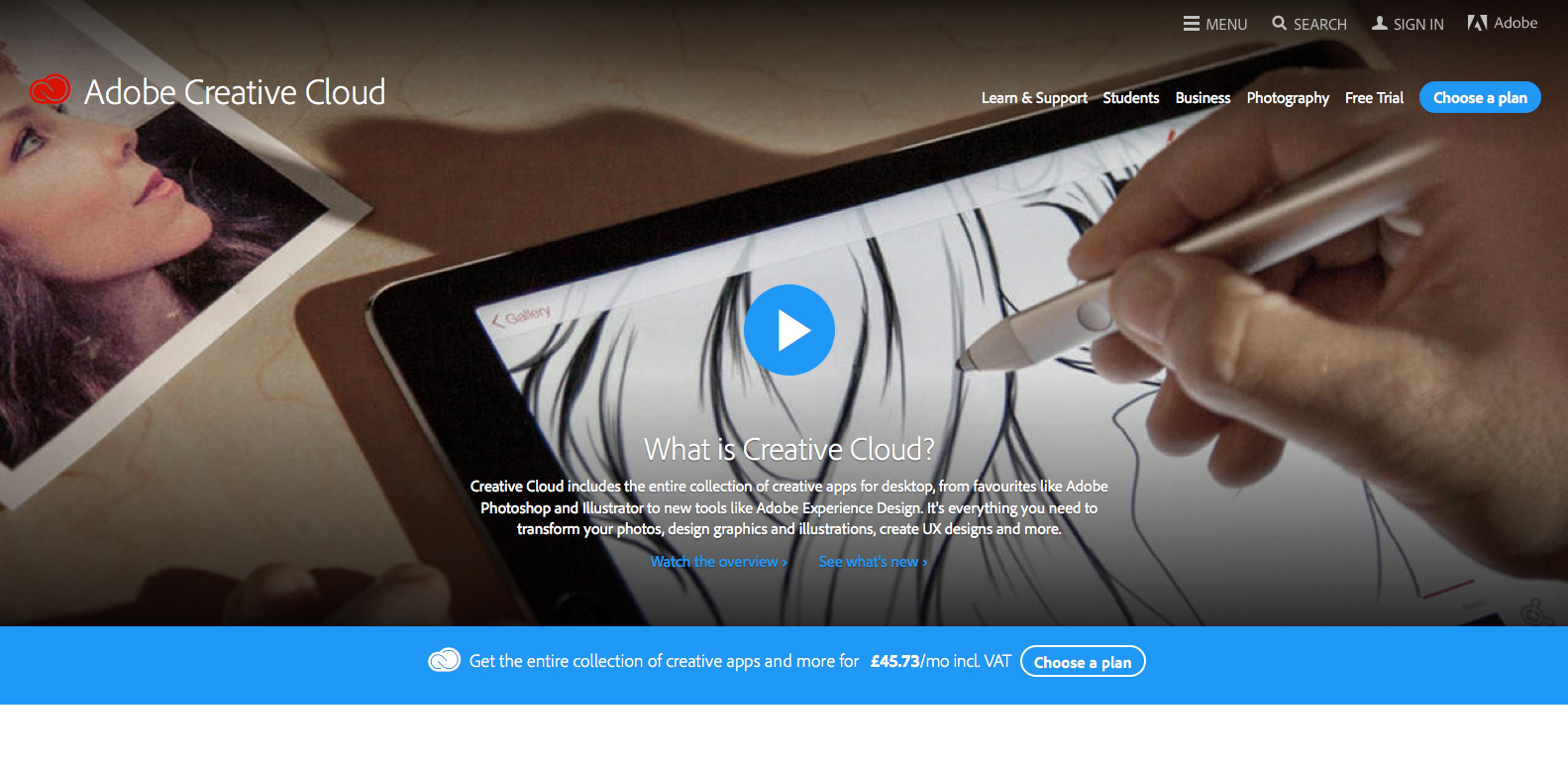
- Price: From £45.73pm
Adobe’s full CC Suite is the industry standard for a reason – its apps are fast, reliable and near limitless in their creative possibilities.
But let’s start with the workhorse: Photoshop. Whether your studio specialises in print, web and app design, or motion graphics and video, you’ll likely need Photoshop. A single licence for the app starts from £17 a month.
For digital workflows, Adobe Muse is a rapid prototyping tool for websites and apps. It’s a design- led coding environment, which outputs in fully responsive HTML5. An ever-growing library of widgets deploys pre-coded JQuery, AJAX and JSON elements, for forms, menus and other elements, killing the need for laborious coding.
Get the Creative Bloq Newsletter
Daily design news, reviews, how-tos and more, as picked by the editors.
For video and motion graphics editors, Premiere Pro and After Effects take a lot of beating. The former has done away with the need to transcode media, meaning you can edit any video format on the fly, while colour support and stability is incomparable. After Effects syncs with Premiere Pro, and remains the go-to option for motion graphics editors due to its fast rendering and ability to tweak compositions in preview mode.
02. Final Cut Pro X
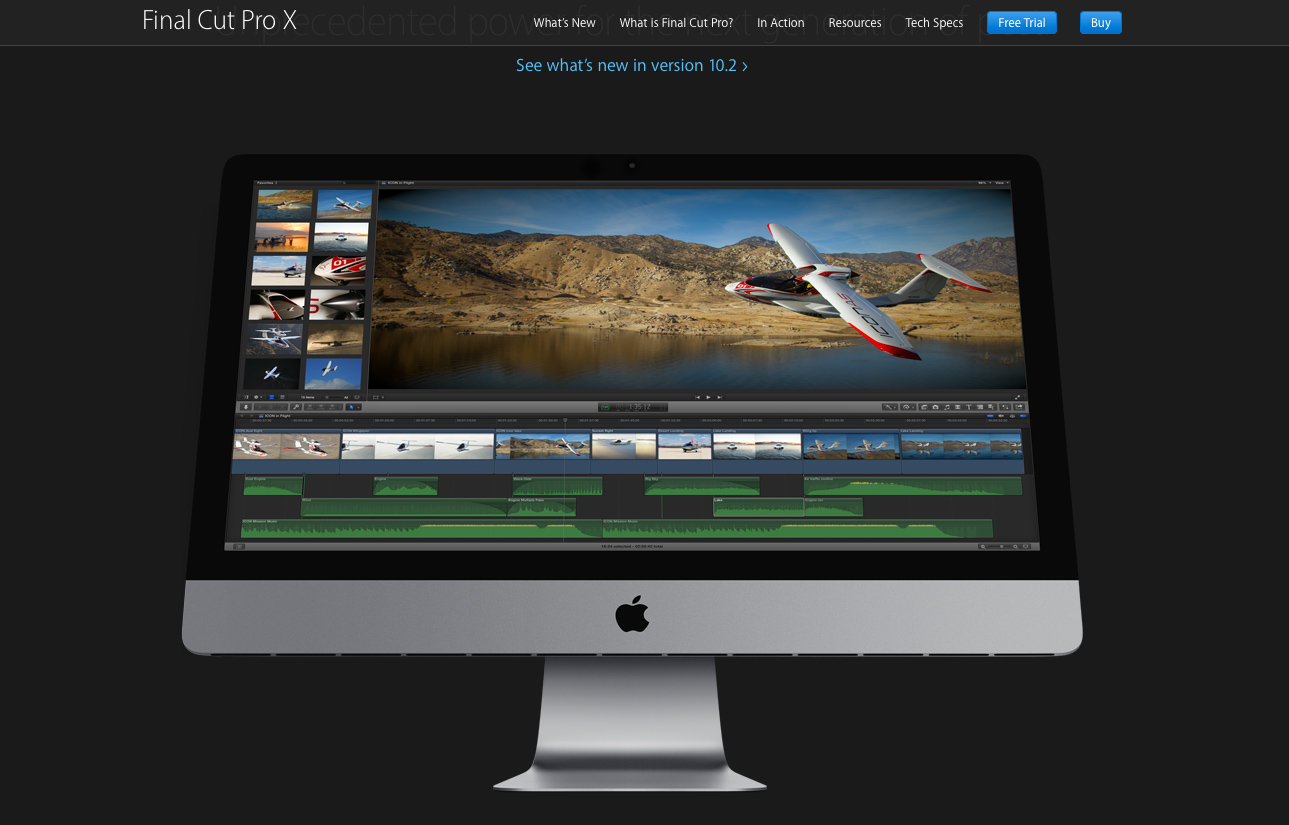
- Price: £229.99
FC Pro X now supports the pro RED RAW footage format, and handles it using some clever GPU acceleration. It also packs in motion graphics, and impressive 2D and 3D rendering support – and encodes with its Compressor 4 workflow. If TV broadcast is your studio’s game, FC Pro X is a serious contender.
03. Serif Affinity Designer

- Price: £29.99
Fast, stable, affordable and supporting a vast array of formats, Serif’s vector design tool features creative basics and tools, and professional level features including non-destructive effects and adjustments; font handling; and end-to-end CMYK and ICC colour management.
04. ZBrush 4R7
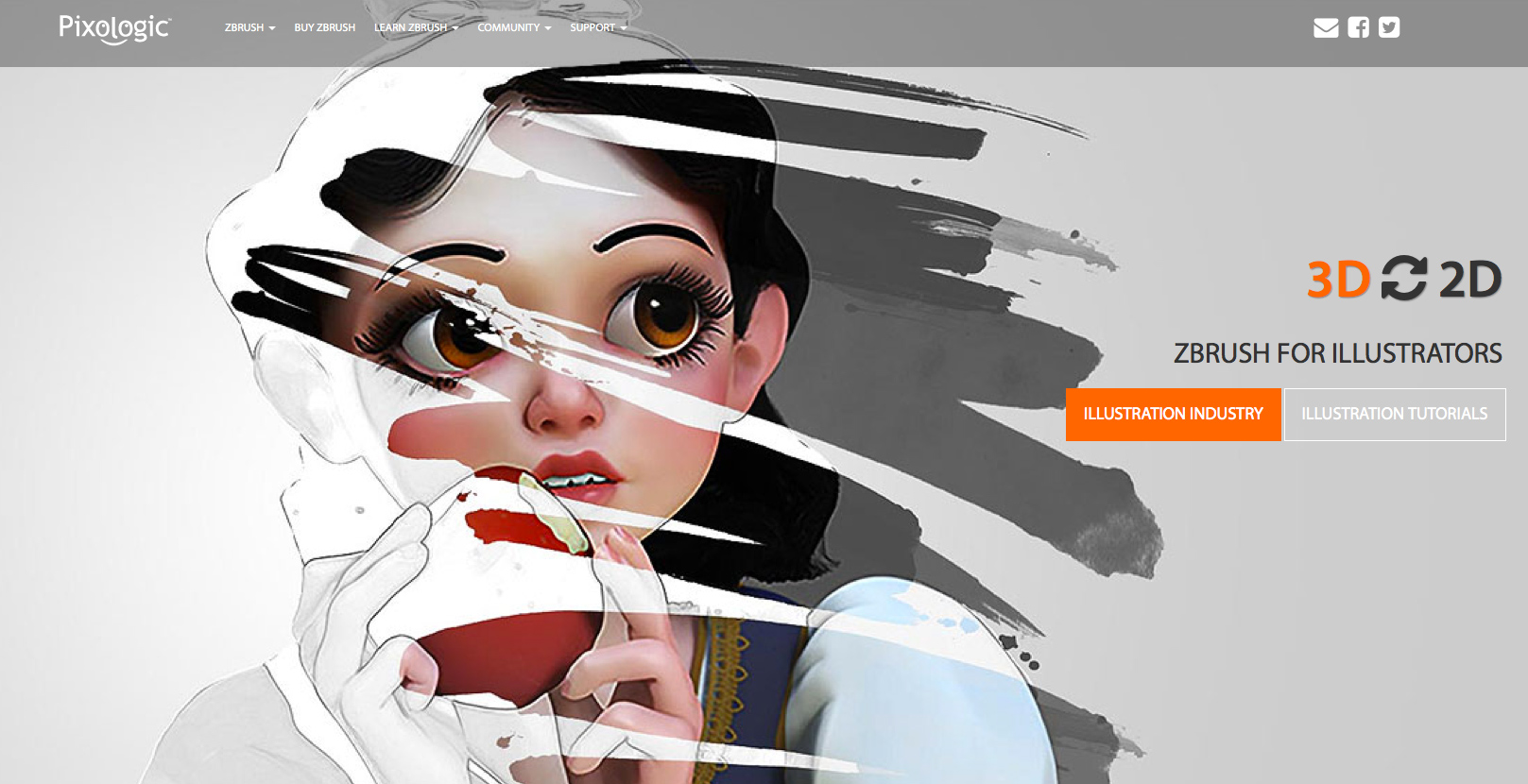
- Price: $795 (Single user license)
Real time remodelling, shape fusing and workflow enhancements, including advanced path connections and quick repeat instances, make this a fast and slick creative tool. ZBrush 4R7 has 64-bit support, more detailed surface modelling, and FBX Import and Export for deploying textures, displacement maps and blending shapes.
05. Slack
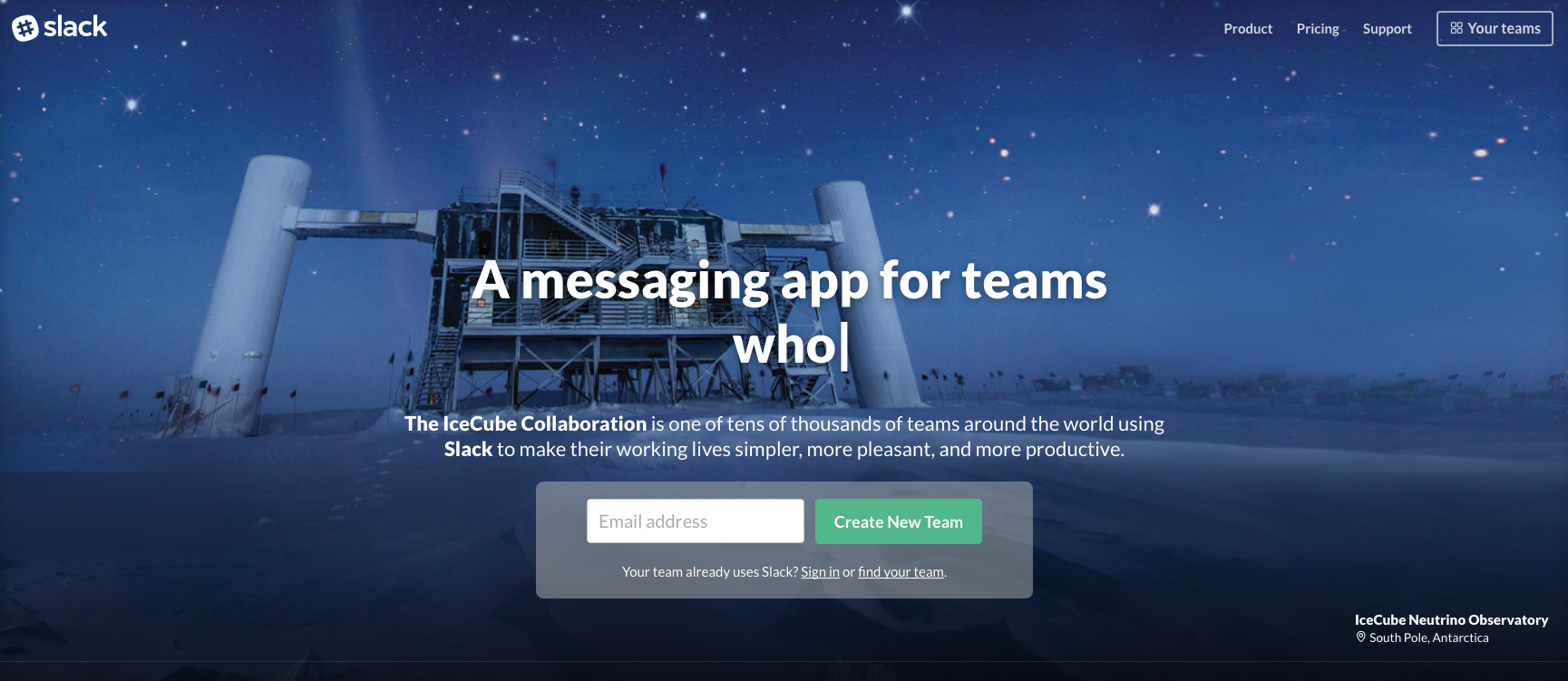
- Price: Free
Slack organises team conversations in channels – each channel deploys a live messaging window, drag and drop file sharing, archiving features (so you can dig out that document from last week and go back over the changes your client now understands are necessary), as well as direct messaging and syncing with GoogleDrive, DropBox, Twitter and more. It cuts email out of the equation, giving you a single app to organise and track your project’s communications.
06. TrafficLive

- Price: Price varies depending on service level
Running a successful studio means time-logging and keeping abreast of your accounts. These aren’t creative tasks, but they’re too important to be left to an Excel spreadsheet. TrafficLive unifies all of the major tasks a studio faces: from client relationship logs, time-recording, project management calendars, to resource management and cashflow.
07. Sketch
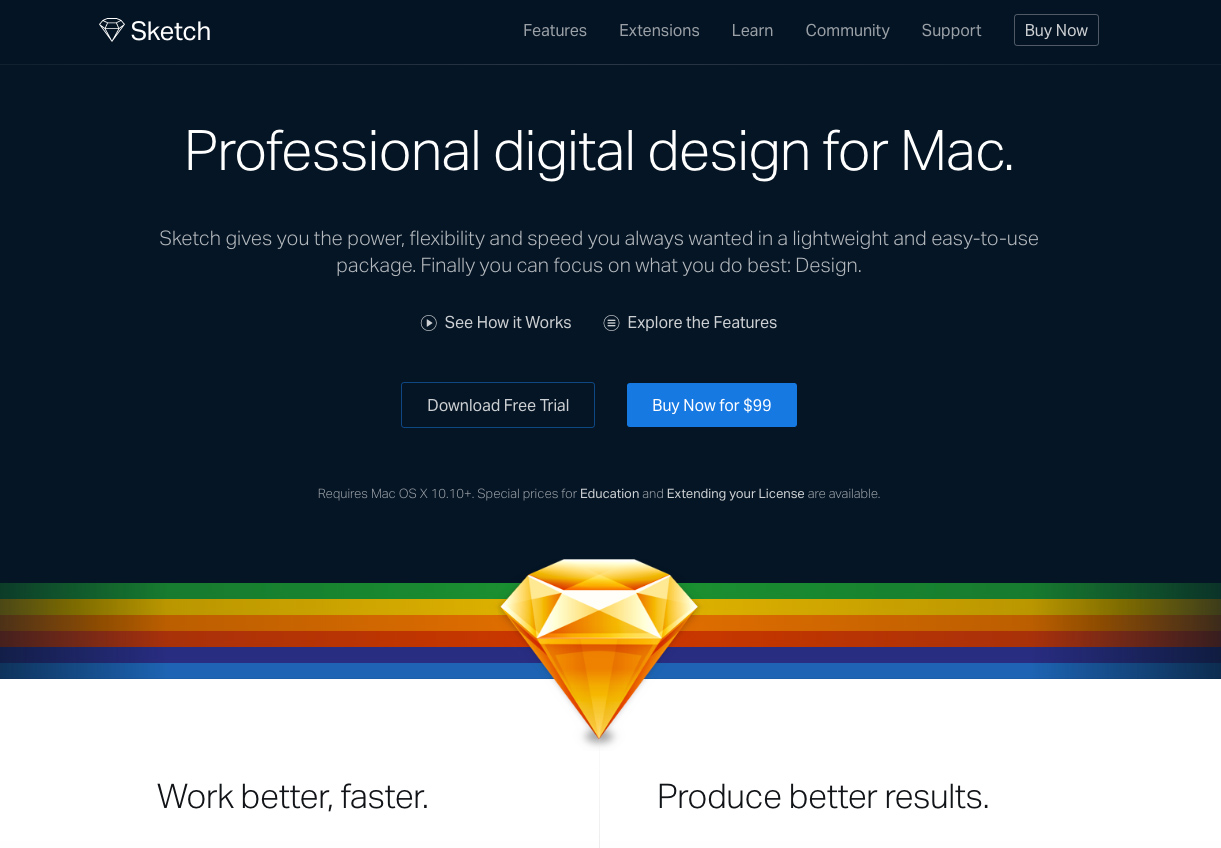
- Price: $99
Sketch is vector based – meaning scaling for presentations and differing screen resolutions and devices is a breeze – while its toolset rivals those of software options five times its price. It’s got a straightforward workflow, with an Inspector putting all major effects and tools front and centre. Its text and font handling is also superb – you can instantly preview work on different devices. Best of all, Sketch’s slicing and exporting options include CSS markup for developers to get their teeth into.
08. Team
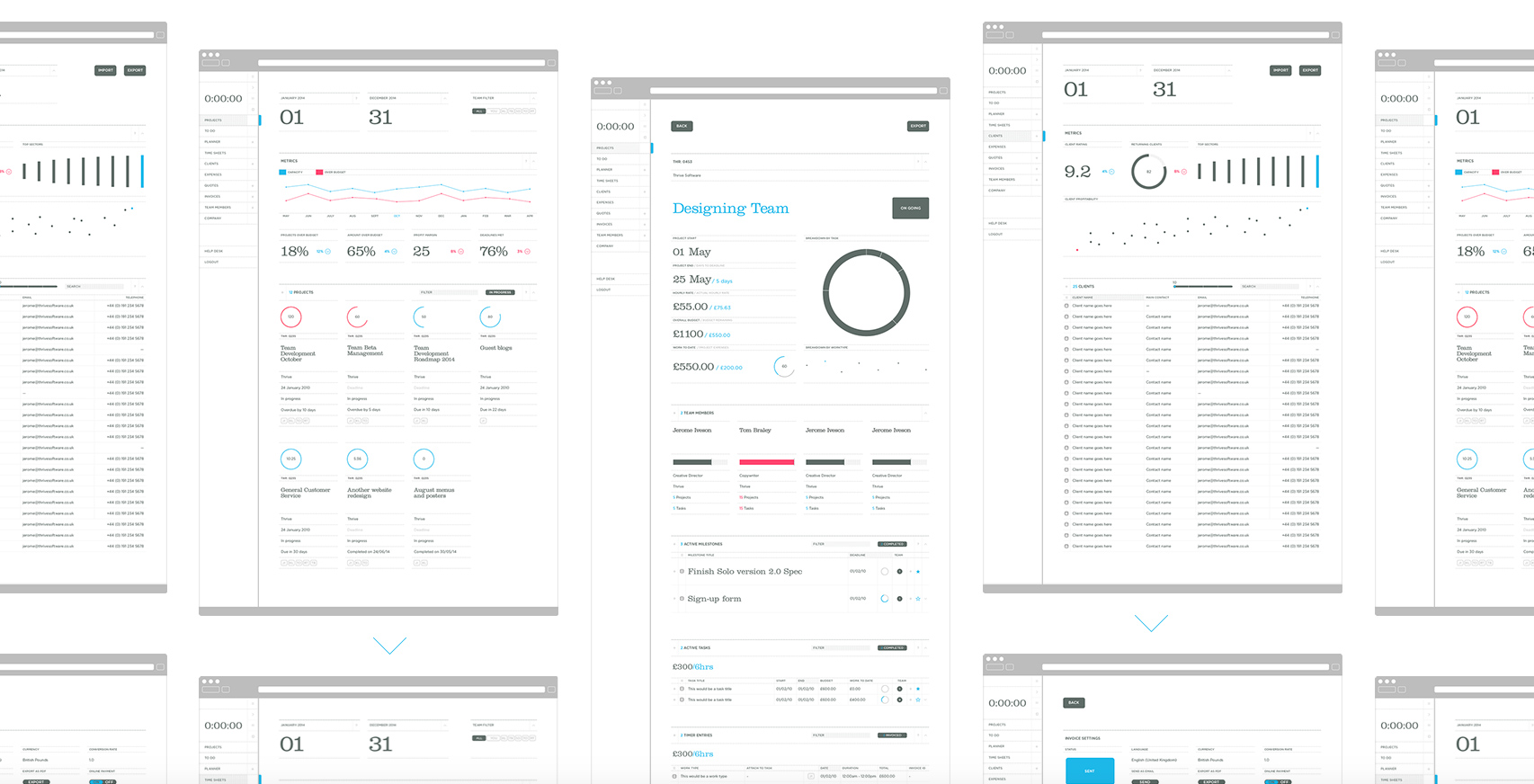
- Price: From $9 per month
Team pares creative project data back to its core and presents info in a way designers understand. Its main abilities are in measuring, managing and improving workflows, for example, by showing project deadlines and outstanding tasks. It also has straightforward invoicing and accounting features.
09. ATOM
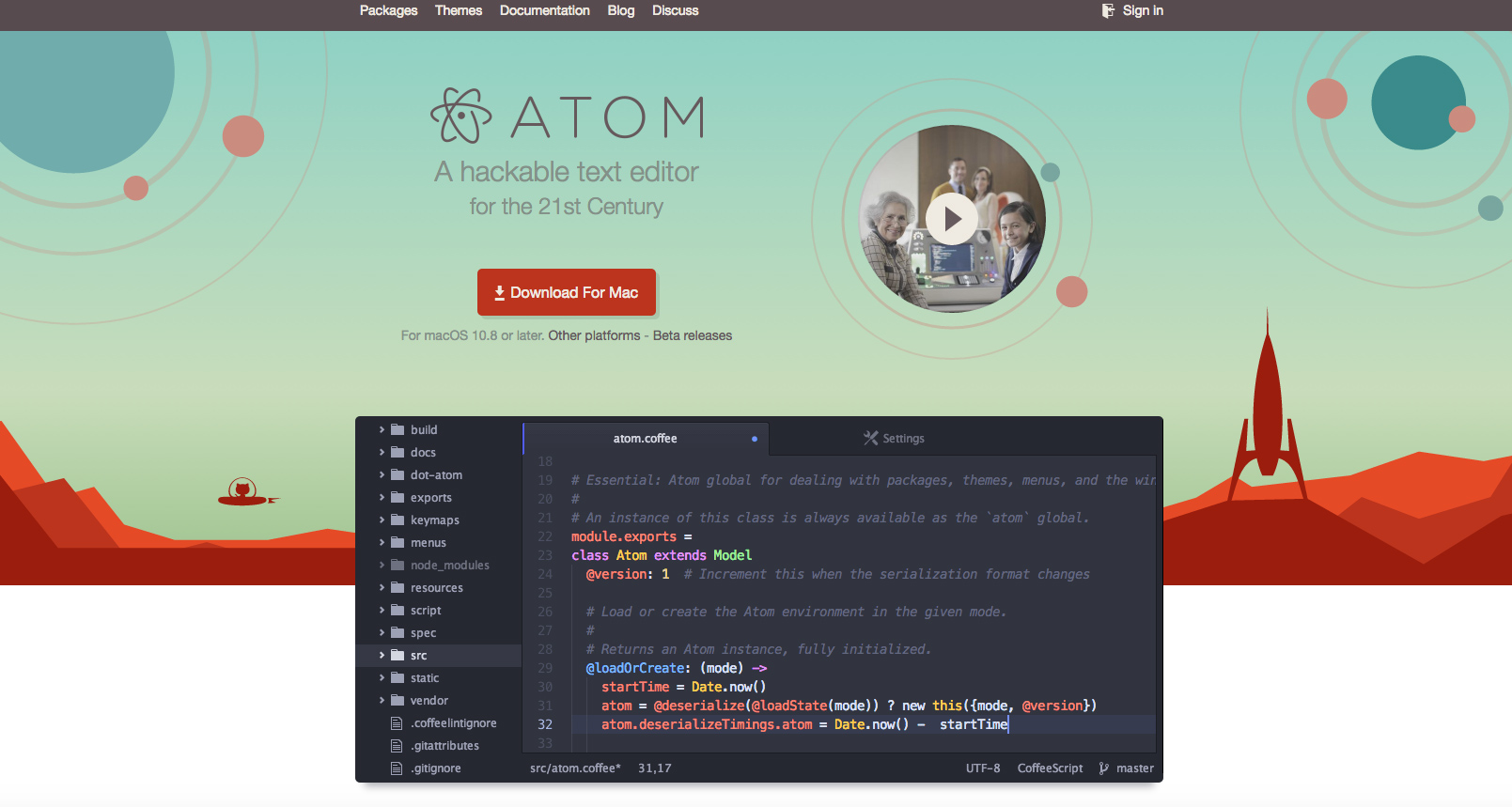
- Price: Free
This free, open-source, infinitely customisable text editor has taken the coding world by storm. It’s cross platform, features smart auto-complete for a vast range of syntaxes and languages and has the sort of file system browser normally seen in apps costing £100 or more. It’s incredibly well-supported in the community, too, meaning there’s an ever-growing range of packages that add additional features and functionality.
This article originally appeared in Computer Arts issue 257; buy it here.

Thank you for reading 5 articles this month* Join now for unlimited access
Enjoy your first month for just £1 / $1 / €1
*Read 5 free articles per month without a subscription

Join now for unlimited access
Try first month for just £1 / $1 / €1

Tom Dennis is a journalist, editor and content director with more than a decade’s experience working on international magazines, newspapers, and websites. While Tom is an expert on all things tech, having previously edited sister Future sites T3 and Computer Arts and picked up a PPA award for being a 'Digital Native', he still has a soft spot for the printed word. Tom has since moved into digital content marketing.
